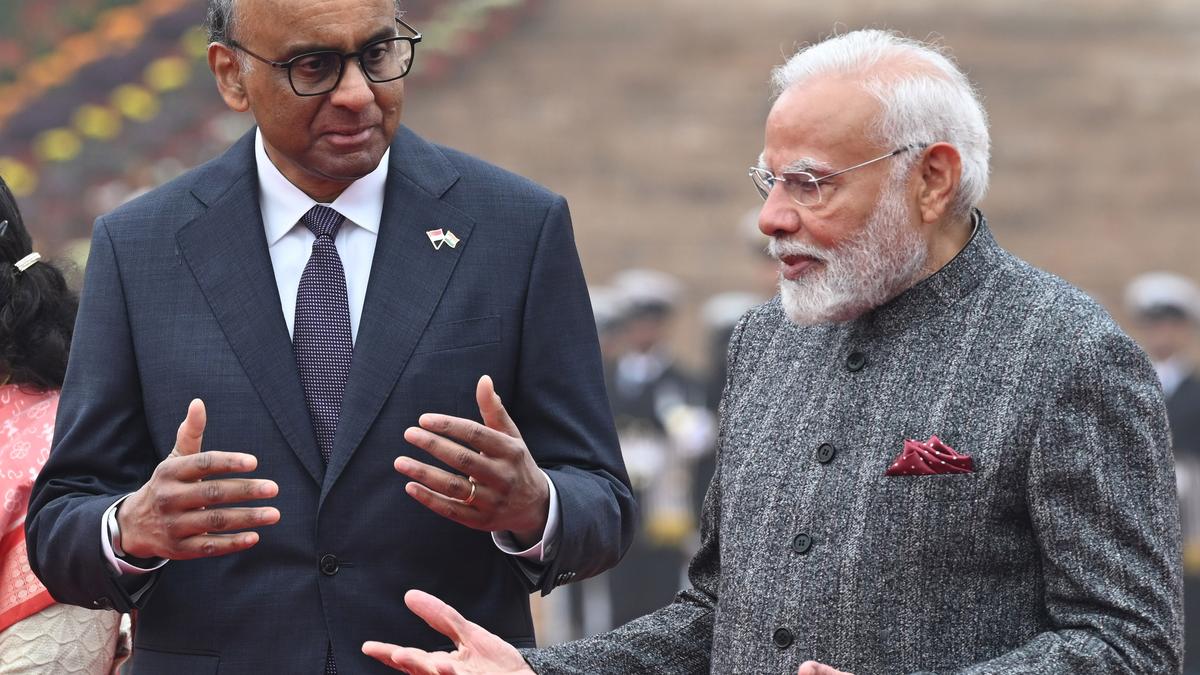India–Singapore Semiconductor Cooperation

- 20 Jan 2025
In News:
During his 2025 visit to India, Singapore President Tharman Shanmugaratnam announced plans to collaborate with India on semiconductor manufacturing and the creation of a semiconductor ecosystem, marking the 60th anniversary of diplomatic ties between the two nations.
Singapore’s Semiconductor Landscape
- Contribution to Economy: Accounts for ~8% of Singapore’s GDP.
- Global Standing:
- Produces 10% of global semiconductor output.
- 5% of global wafer fabrication capacity.
- 20% of global semiconductor equipment production.
- Comprehensive Ecosystem: End-to-end capabilities from IC design to packaging and testing.
- Infrastructure: Four wafer fabrication parks with advanced facilities.
- Current Limitation: Focused on mature-node chips (28 nm+); lacks high-end logic chip manufacturing (7 nm or below).
India’s Semiconductor Sector
- Market Size (2024): Valued at USD 52 billion; projected to reach USD 103.4 billion by 2030.
- Import Dependency: ~85% of semiconductor needs met through imports.
- Export-Import Gap (2022): USD 5.36 billion (imports) vs. USD 0.52 billion (exports).
India's Advantages:
- Skilled Talent Pool: Large number of STEM graduates.
- Cost Efficiency: Lower manufacturing and operational costs.
- Geopolitical Opportunity: Global supply chain diversification away from China.
Government Initiatives:
- India Semiconductor Mission (ISM)
- Semicon India Programme
- Display & Semiconductor Fab Schemes
- SPECS (Scheme for Promotion of Manufacturing of Electronic Components and Semiconductors)
Foreign Collaborations:
- MoUs with US, Japan, and European Commission.
- Tata–Powerchip (Taiwan) collaboration for a fab in Dholera, Gujarat.
How Singapore Can Support India’s Semiconductor Vision
- Manufacturing Partnerships:
- Collaborations with Singaporean firms for assembly and testing services.
- Access to Singapore's advanced manufacturing technologies.
- Talent Development:
- Academic exchanges in microelectronics and semiconductor engineering.
- Joint research and PhD programs.
- Infrastructure Development:
- Replication of Singapore-style wafer fab parks in India.
- Joint ventures to build specialized semiconductor industrial zones.
- Technology Access & Innovation:
- Transfer of advanced technologies and critical semiconductor materials.
- Collaboration on new-generation tech solutions (e.g., AI chips, advanced computing).
Additional Areas of Bilateral Cooperation
- Digital Economy: Exploring data corridor between GIFT City (India) and Singapore.
- Sustainability: Cooperation on green hydrogen, sustainable aviation fuel, and renewable energy.
Strategic Partnership: Upgraded to Comprehensive Strategic Partnership in 2024.
